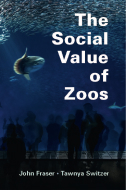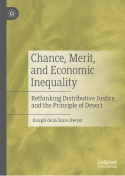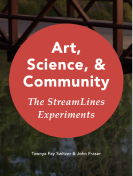Books by Knology
Knology’s publishing program features evidence-based books for a variety of audiences. These titles explore complex social issues through the lens of social science research and theory. They are designed to equip professionals with the information they need to build a better world.
Books by Knology Team Members
 The Social Value of Zoos - In this book, authors John Fraser and Tawnya Switzer explore what is currently known about zoos and aquariums. They examine these institutions as settings for sociocultural intersections, where organizational mission, public perception, and onsite meaning-making overlap. This book is designed to provide university students and professionals a deeper understanding of the social science that drives the zoo and aquarium enterprise. Published by Cambridge University Press. Find out more and order a copy.
The Social Value of Zoos - In this book, authors John Fraser and Tawnya Switzer explore what is currently known about zoos and aquariums. They examine these institutions as settings for sociocultural intersections, where organizational mission, public perception, and onsite meaning-making overlap. This book is designed to provide university students and professionals a deeper understanding of the social science that drives the zoo and aquarium enterprise. Published by Cambridge University Press. Find out more and order a copy.
 Chance, Merit, and Economic Inequality - In this book, Joseph de la Torre Dwyer develops a new approach to distributive justice by developing an argument based on the concept of luck. Drawing from political economics and philosophy, Dwyer proposes a new model for applying equal opportunity to economic policy. This book may be especially useful for researchers, graduate students, and policymakers. Published by Palgrave MacMillan, part of Springer Nature. For more details about the book, see our review. To order a copy, see the publisher’s page.
Chance, Merit, and Economic Inequality - In this book, Joseph de la Torre Dwyer develops a new approach to distributive justice by developing an argument based on the concept of luck. Drawing from political economics and philosophy, Dwyer proposes a new model for applying equal opportunity to economic policy. This book may be especially useful for researchers, graduate students, and policymakers. Published by Palgrave MacMillan, part of Springer Nature. For more details about the book, see our review. To order a copy, see the publisher’s page.
 Art, Science, & Community: The StreamLines Experiments - Authors Tawnya Fay Switzer and John Fraser tell the story of a city-wide science learning project that took place in Indianapolis, Indiana. This project looked at the nature of connections between art and science, using the city's waterways and public spaces as a laboratory. It wrestles with topics that continue to be critical to transdisciplinary collaboration: the nature of knowledge, the role of disciplinary tension and conflict, the distinct capabilities of presenting and performing arts, and what democratic access to learning can be. Download the ebook.
Art, Science, & Community: The StreamLines Experiments - Authors Tawnya Fay Switzer and John Fraser tell the story of a city-wide science learning project that took place in Indianapolis, Indiana. This project looked at the nature of connections between art and science, using the city's waterways and public spaces as a laboratory. It wrestles with topics that continue to be critical to transdisciplinary collaboration: the nature of knowledge, the role of disciplinary tension and conflict, the distinct capabilities of presenting and performing arts, and what democratic access to learning can be. Download the ebook.
Photo credit: Tom Hermans on Unsplash.